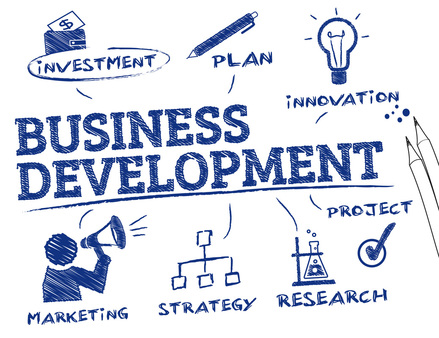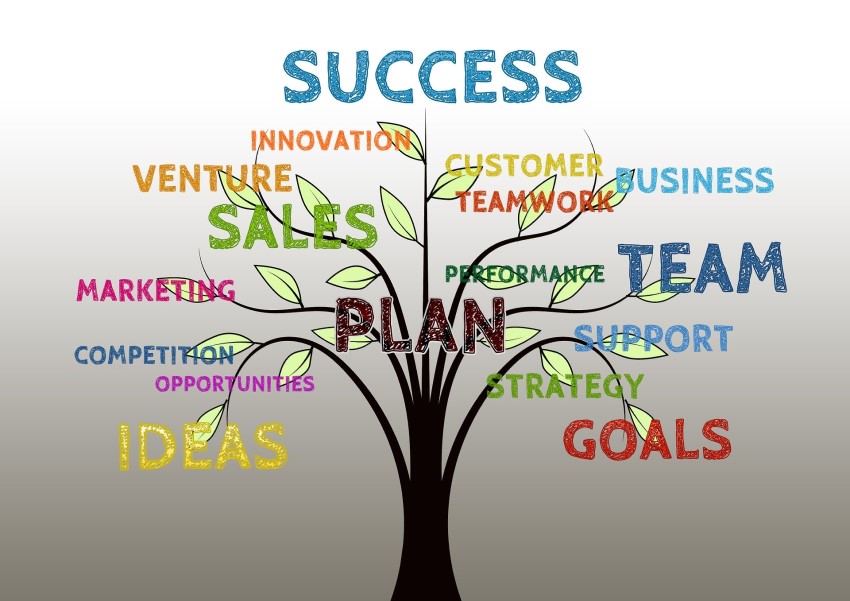Business growth is a crucial component of any organization. Business development executives work by assessing a company’s performance and identifying areas for improvement. If a company doesn’t have any employees dedicated to growing the business, no one will challenge you to improve or tell you about new business opportunities or how you can engage your target audience more efficiently. This will limit the company’s success. For our today’s article, we’ll look at what business development is, the basics, and the skills needed to grow a business.
What is business development?
Essentially, business development is a set of tasks and processes aimed at developing and realizing growth opportunities in organizations in a sustainable and profitable manner. It identifies long-term methods for adding value through developing relationships, markets, and customers. In practice, however, most companies use the term differently, depending on the role it plays for each company. Yet despite their differences, business developers across companies share a common goal: to discover and implement new growth opportunities.

Read more: What is Business? Everything Related To Business you Must Know
The basics of Business Development
In the simplest terms, business development can be summed up as ideas, initiatives, and activities that help improve business operations. This includes increasing revenue, growing in terms of business expansion, increasing profits by building strategic partnerships, and making strategic business decisions. “Business Development Executive,” “Manager of Business Development,” and “VP, Business Development” are all commonly found titles in business organizations. Sales, strategic initiatives, business partnerships, market development, business expansion and marketing- all these areas are related to business development.
What are the skills required for Business Development?
Business development activities extend across various departments, including sales, marketing, project management, product management, and supplier management. All of these disparate divisions and activities are driven and aligned with business development goals.

Strategic Initiatives or Partnerships
Companies often rely on partnerships to scale their operations and establish their presence in a new market. Business developers get the support of financial and legal teams to better understand market dynamics, then weigh all the pros and cons and choose the best option for their business.
Project Management/Business Planning
Key decisions and projects will be finalized by the business development team based on their time and cost considerations. They can work with senior managers to provide initial direction and brief communication to project managers, who will then take over and monitor progress. The project management/implementation team then takes action toward the desired goal.
Product Management
Regulatory standards and market requirements vary from country to country. For example, a drug with certain ingredients may be allowed in India but not in the UK. These requirements drive the work of production and product management departments, dictated by business strategy. Cost review, legal approval and regulatory compliance are all assessed as part of the business development plan.
Vendor Management
A supplier is a partner or employee of a company that handles the retail experience related to its product or service. Business development executives help companies identify suppliers and estimate the costs and legal implications of vending operations.
Negotiations, Networking, and Lobbying
Some business initiatives may require soft skills expertise. Business development executives must actively negotiate and network on behalf of the companies they represent. While lobbying is a legal gray area in many parts of the world, it is essential for business growth in most cases, especially when companies try to enter the market. Business developers can initiate these interactions with government agencies, agencies, regulators, and suppliers.

Cost Savings
Corporate profitability can be improved not only by expanding sales and scale of operations but also through carefully implemented cost reduction mechanisms. Management can implement cost-saving initiatives by outsourcing non-core tasks such as invoicing, financial accounting, and customer service.
Business Development Ethics
Business ethics deals with the implementation of appropriate and fair practices regarding issues such as corporate governance, corporate social responsibility, and fiduciary responsibility. Laws and regulations often establish standards for business ethics, which companies can then choose to follow and build upon to win trust and loyalty from consumers and other stakeholders.
Conclusion
To sum up, Business development can be difficult to define precisely but can be easily understood using a concept in action. An open mind, a willingness to make an honest and realistic self-assessment, and an ability to accept failure are some of the skills needed to grow a successful business. Business developers should be ready to adapt to change for the best results. All are lessons learned to better prepare for the next challenges.
Read more:

